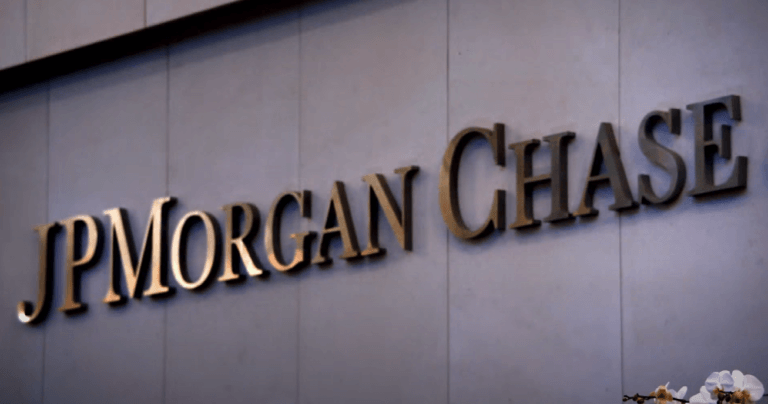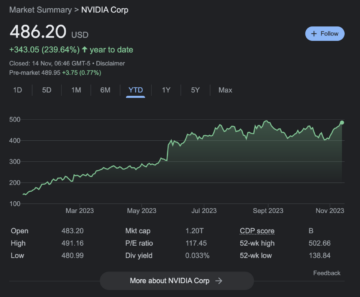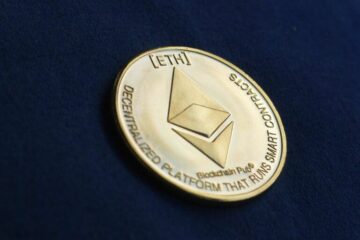
In an interview with CNBC’s Leslie Picker at J.P. Morgan’s 2024 Global Emerging Markets Corporate Conference (February 26-28, 2024) in Miami, Florida, Jamie Dimon, Chairman and CEO of JPMorgan Chase, offered his expert analysis on several pivotal subjects shaping the financial world. From the transformative potential of artificial intelligence (AI) to the intricacies of market dynamics and the strategic positioning of JPMorgan, Dimon provided a wealth of insights.
Embracing AI: A Paradigm Shift
Dimon is unequivocal about AI’s significance, heralding it as a genuine revolution rather than mere hype:
“This is not hype. This is real. When we had the internet bubble the first time around … that was hype. This is not hype. It’s real … People are deploying it at different speeds, but it will handle a tremendous amount of stuff.”
Contrasting today’s technological advancements with the tech bubble of the late 1990s, he highlighted AI’s practical applications already in motion within JPMorgan. The firm’s commitment is evident in its dedicated team of 200 researchers exploring large language models, underscoring AI’s potential to innovate across cybersecurity, pharmaceutical research, and beyond.
Market Outlook: Vigilance Amid Optimism
Dimon’s commentary during the interview revealed a cautious yet optimistic view of the current market. Despite the allure of an open equity market and tightening spreads, he advised a careful consideration of potential shifts, pointing to quantitative tightening, fiscal spending, and geopolitical tensions as factors that could redefine market trajectories. His prudent outlook reflects a broader strategy of hedging against unforeseen economic shifts, advocating for a balanced approach to risk and opportunity.
Real Estate and Lending: A Measured Perspective
Addressing concerns around commercial real estate and lending, Dimon differentiated between the consumer and commercial sectors, suggesting that while challenges exist, particularly in office real estate, they do not currently constitute a crisis. He emphasized the importance of navigating potential downturns with strategic refinancing and equity adjustments, viewing defaults as part of a normalization process rather than indicators of systemic failure.
Regulatory Environment and Competitive Dynamics
<!–
–>
<!–
–>
Dimon also touched on the regulatory landscape’s impact on banking competition, advocating for policies that foster innovation and allow for strategic mergers and acquisitions. Reflecting on the competitive implications of Capital One’s acquisition of Discover, he underscored the importance of fair competition and the adaptability of banks like JPMorgan in responding to market changes.
[embedded content]
On January 10, the JPMorgan Chase CEO joined Maria Bartiromo on Fox Business’s “Mornings with Maria” to discuss a range of topics, from the state of the U.S. economy and upcoming banking regulations to his perspective on cryptocurrency.
Regarding the matter of his succession at JPMorgan Chase, Dimon mentioned that the decision rests with the board, which has several potential candidates in mind. He stressed the importance of selecting the most suitable individual for the leadership role without giving preference to gender, acknowledging the talent among both senior women and men within the company. However, he dismissed the notion of conducting a public competition for his replacement.
Dimon shared his insights on the economic outlook for 2024, highlighting geopolitical tensions as a more immediate concern than economic factors, given their significance to the Western world’s freedom. He pointed out that while consumer finances appear robust, the surplus funds from COVID-19 relief measures are depleting. He cast doubt on the likelihood of an ideal economic scenario unfolding, instead suggesting the possibility of either a mild or severe recession driven by high interest rates, the cessation of quantitative easing, and government deficits.
In discussing the Federal Reserve’s interest rate policies, Dimon expressed skepticism towards market expectations for rate reductions. He cited several factors, such as fiscal deficits and international events, that could exert inflationary pressures, drawing parallels to the economic conditions of the 1970s. He underscored the importance of being prepared for shifts in the economic landscape.
Dimon also voiced criticism over new banking regulations that mandate increased capital reserves for major banks, arguing that these rules could negatively impact everything from mortgage lending to small business financing. He highlighted the competitive disadvantage these regulations could impose on U.S. banks compared to their international counterparts, labeling certain requirements, like operational risk capital and the Global Systemically Important Banks (GSIB) surcharge, as nonsensical and counterproductive to diversification.
On the topic of Bitcoin and cryptocurrency, Dimon reiterated his skepticism, pointing to the currency’s association with unlawful activities, including tax evasion. He questioned the intrinsic value of Bitcoin, suggesting that its primary applications extend beyond mere transactions to include illicit uses. Dimon even speculated that, were he in a governmental position, he might advocate for its prohibition.
[embedded content]
- SEO Powered Content & PR Distribution. Get Amplified Today.
- PlatoData.Network Vertical Generative Ai. Empower Yourself. Access Here.
- PlatoAiStream. Web3 Intelligence. Knowledge Amplified. Access Here.
- PlatoESG. Carbon, CleanTech, Energy, Environment, Solar, Waste Management. Access Here.
- PlatoHealth. Biotech and Clinical Trials Intelligence. Access Here.
- Source: https://www.cryptoglobe.com/latest/2024/02/jpmorgan-ceo-jamie-dimon-on-ai-this-is-not-hype-this-is-real/
- :has
- :is
- :not
- ][p
- 10
- 200
- 2024
- 360
- a
- About
- acquisition
- acquisitions
- across
- activities
- adaptability
- adjustments
- Ads
- advancements
- advised
- advocate
- advocating
- against
- AI
- All
- allow
- allure
- already
- also
- Amid
- among
- amount
- an
- analysis
- and
- appear
- applications
- approach
- ARE
- around
- artificial
- artificial intelligence
- Artificial intelligence (AI)
- AS
- Association
- At
- balanced
- Banking
- Banks
- being
- between
- Beyond
- Bitcoin
- Bitcoin and cryptocurrency
- board
- both
- broader
- bubble
- business
- but
- by
- candidates
- capital
- careful
- cautious
- ceo
- certain
- chairman
- challenges
- Changes
- chase
- cited
- CNBC
- Commentary
- commercial
- commercial real estate
- commitment
- company
- compared
- competition
- competitive
- Concern
- Concerns
- conditions
- conducting
- Conference
- consideration
- constitute
- consumer
- content
- Corporate
- could
- counterparts
- counterproductive
- COVID-19
- crisis
- criticism
- cryptocurrency
- CryptoGlobe
- Current
- Currently
- Cybersecurity
- decision
- dedicated
- defaults
- depleting
- deploying
- Despite
- different
- differentiated
- Dimon
- Disadvantage
- discover
- discuss
- discussing
- diversification
- do
- doubt
- downturns
- drawing
- driven
- during
- dynamics
- easing
- Economic
- Economic Conditions
- economy
- either
- embedded
- emerging
- emerging markets
- emphasized
- Environment
- equity
- estate
- Ether (ETH)
- evasion
- Even
- events
- everything
- evident
- exist
- expectations
- expert
- Exploring
- expressed
- extend
- factors
- Failure
- fair
- February
- Federal
- Federal Reserve’s
- finance
- Finances
- financial
- financing
- First
- first time
- Fiscal
- florida
- For
- Foster
- fox
- Freedom
- from
- funds
- Gender
- genuine
- geopolitical
- given
- Giving
- Global
- Government
- governmental
- had
- handle
- he
- hedging
- heralding
- High
- Highlighted
- highlighting
- his
- However
- HTML
- HTTPS
- Hype
- ideal
- illicit
- immediate
- Impact
- implications
- importance
- important
- impose
- in
- include
- Including
- increased
- Indicators
- individual
- Inflationary
- Inflationary pressures
- innovate
- Innovation
- insights
- instead
- Intelligence
- interest
- INTEREST RATE
- Interest Rates
- International
- Internet
- Interview
- intricacies
- intrinsic
- issues
- IT
- ITS
- Jamie
- Jamie Dimon
- January
- joined
- JPMorgan
- jpmorgan ceo
- jpmorgan chase
- labeling
- landscape
- language
- large
- Late
- Leadership
- lending
- like
- likelihood
- major
- mandate
- maria
- Market
- Markets
- Matter
- measured
- measures
- Men
- mentioned
- mere
- mergers
- Mergers and Acquisitions
- Miami
- might
- mild
- mind
- models
- more
- Mortgage
- most
- motion
- navigating
- negatively
- New
- Notion
- of
- offered
- Office
- on
- open
- operational
- Opportunity
- Optimistic
- or
- out
- Outlook
- over
- paradigm
- Parallels
- part
- particularly
- People
- perspective
- Pharmaceutical
- pivotal
- plato
- Plato Data Intelligence
- PlatoData
- policies
- position
- positioning
- possibility
- potential
- Practical
- Practical Applications
- prepared
- pressures
- primary
- process
- Prohibition
- provided
- public
- quantitative
- Quantitative Easing
- quantitative tightening
- Questioned
- range
- Rate
- rate reductions
- Rates
- rather
- real
- real estate
- recession
- redefine
- reductions
- reflecting
- reflects
- regulations
- regulatory
- relief
- replacement
- Requirements
- research
- researchers
- reserves
- responding
- Revealed
- Revolution
- Risk
- risks
- robust
- Role
- rules
- s
- scenario
- Screen
- screens
- Sectors
- selecting
- senior
- several
- severe
- shaping
- shared
- Shifts
- significance
- significant
- sizes
- Skepticism
- small
- small business
- speeds
- Spending
- Spreads
- State
- Strategic
- Strategy
- stuff
- such
- suitable
- surplus
- systemic
- systemically
- Talent
- tax
- Tax Evasion
- team
- tech
- technological
- tensions
- than
- that
- The
- The State
- their
- These
- they
- this
- tightening
- time
- to
- today’s
- topic
- Topics
- touched
- towards
- Transactions
- transformative
- tremendous
- u.s.
- U.S. economy
- underscored
- unfolding
- unforeseen
- unlawful
- upcoming
- us
- US economy
- use
- uses
- value
- value of bitcoin
- View
- viewing
- vigilance
- warning
- was
- we
- Wealth
- were
- Western
- when
- which
- while
- will
- with
- within
- without
- Women
- world
- world’s
- yet
- youtube
- zephyrnet












